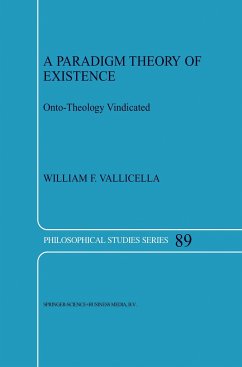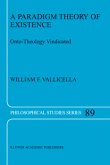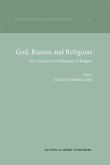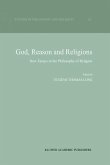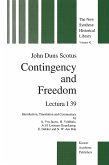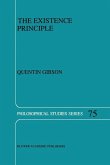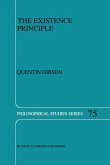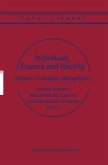The heart of philosophy is metaphysics, and at the heart of the heart lie two questions about existence. What is it for any contingent thing to exist? Why does any contingent thing exist? Call these the nature question and the ground question, respectively. The first concerns the nature of the existence of the contingent existent; the second concerns the ground of the contingent existent. Both questions are ancient, and yet perennial in their appeal; both have presided over the burial of so many of their would-be undertakers that it is a good induction that they will continue to do so. For some time now, the preferred style in addressing such questions has been deflationary when it has not been eliminativist. Ask Willard Quine what existence is, and you will hear that "Existence is what existential quantification expresses. "! Ask Bertrand Russell what it is for an individual to exist, and he will tell you that an individual can no more exist than it can be numerous: there 2 justis no such thing as the existence of individuals. And of course Russell's eliminativist answer implies that one cannot even ask, on pain of succumbing to the fallacy of complex question, why any contingent individual exists: if no individual exists, there can be no question why any individual exists. Not to mention Russell's modal corollary: 'contingent' and 'necessary' can only be said de dicto (of propositions) and not de re (of things).
Hinweis: Dieser Artikel kann nur an eine deutsche Lieferadresse ausgeliefert werden.
Hinweis: Dieser Artikel kann nur an eine deutsche Lieferadresse ausgeliefert werden.
From the reviews: "This book offers an extended argument that the existence of contingent things is grounded in and hence accounted for by a paradigm existent, which is none other than existence itself ... . a very useful book indeed. The ground covered is immense. The author's knowledge of the past century and a half of philosophizing about the problem of existence is encyclopedic, and his arguments are incisive, to the point, and almost always persuasive. ... this volume belongs on the reading list of anyone ... ." (Hugh J. McCann, The Review of Metaphysics, Vol. LVIII (231), 2005) "While reading Vallicella's excellent book, I was constantly reminded of why I went to philosophy. It addresses an important perennial issue, it is deep, well-informed and broad, and it is full of precise, careful arguments. This work is one of the best books I have ever read on topics in analytic ontology. ... Vallicella's book is incredibly rich, learned and rewarding. ... And reading this book would be a good antidote to anyone ... ." (J. P. Moreland, Journal of the Evangelical Philosophical Society, 2005)

